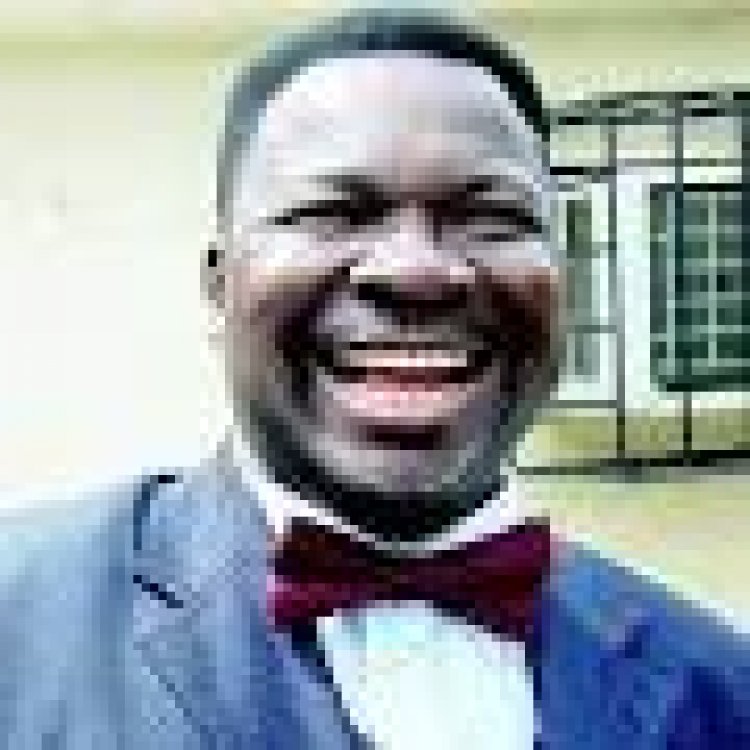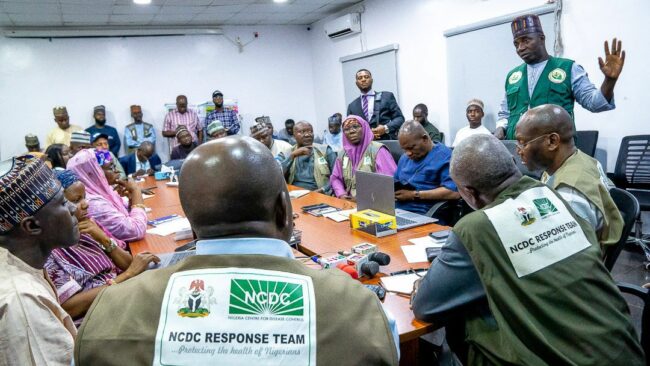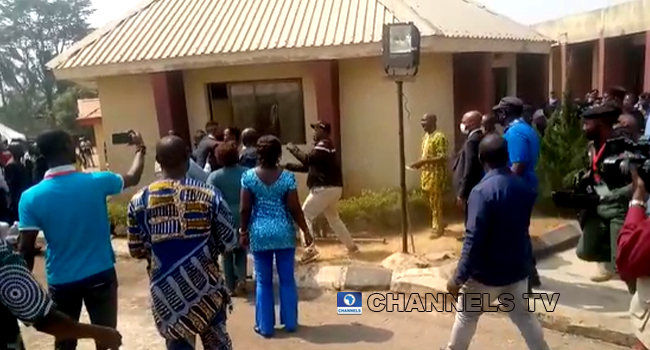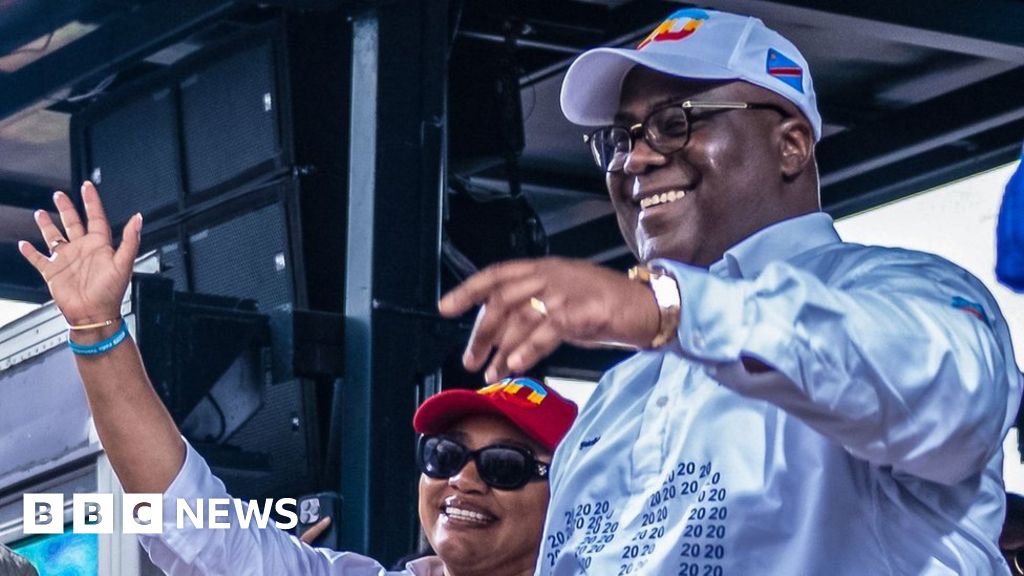Read And Understand Why Tinubu Needs To Get 25% Votes in Abuja. (Part 3) by Prof. Mike Ozekhome, SAN

Read And Understand Why Tinubu Needs To Get 25% Votes in Abuja. (Part 3)
By, Prof. Mike Ozekhome, SAN

The FCT, Abuja, is the political nerve centre of Nigeria. It has been imbued with such a special status as a miniature Nigeria in such a way that any elected president must have to compulsorily win the required 25% vote in the FCT, Abuja, after winning 25% votes in 24 States.
The reasons for this are not far-fetched. FCT, Abuja, is the melting pot which unites all ethnic groups, tribes, religions, people of variegate backgrounds; and other distinct qualities and characteristics in our pluralistic society. It is indeed a multi-diverse and multi-faceted conglomerate of the different and distinct peoples of Nigeria, which according to Prof Onigu Otite, has about 474 ethnic groups which speak over 350 languages.
The FCT, Abuja, is thus regarded as the “Centre of Unity”, which is a testament to its inclusiveness of all tribes, religions, ethnic groups, languages; and peoples of different backgrounds.
Simply put, FCT, Abuja, is a territory or land mass that is made up of individuals from every State and virtually from all the Local Government Areas in the country. It is itself made up of 6 Area Councils, quite distinct from the 768 LGAs in Nigeria, thus bringing the total to 774 LGCs in Nigeria. Consequently, scoring 25% of votes cast in the FCT, Abuja, is a Presidential candidate’s testament to being widely accepted by majority of the Nigerian people. The President is not expected to be a tenant in his seat of power. Will he pay rent to the 24 states he scored 25% votes? I do not know. Or, do you?
The framers of the 1999 Constitution certainly desired for Nigeria, a President that is widely accepted, with national spread; and not one that is a regional kingpin with support only from of his tribe, region, or ethnic group. The provisions contained in section 134 of the 1999 Constitution are meant to reflect this. In the same vein, the framers of the 1999 Constitution viewed the FCT, Abuja, as a melting pot; a sort of mini-Nigeria.
Thus, like a commentator aptly posited, the position or status of the FCT, Abuja, assumes that of a COMPULSORY question that a presidential candidate must ANSWER in the electoral examination.
With the FCT, Abuja, serving as the seat of the Federal Government-with all ministries and MDAs situated in it – it represents a Dolly Parton’s “Coat of many colours”. This is why the Federal Character provided for in sections 14(3),(4); 153(1); and 318(1) of the 1999 Constitution is also reflected in the administration of FCT, even though the Gbagyis are the original Aborigines of the FCT.
The only logical conclusion that can be drawn from the above is that sections 134 (2)(b) and 299 are not mutually exclusive or contradictory, as some commentators posit. Rather, section 299 actually supports and complements section 134.

Whether FCT, Abuja, is regarded as a super-state, full State, pseudo-State, quasi-State, or semi-State, is to me, immaterial. Even if it is none of these, what matters is the clear intention of the Constitution-makers.
Had the law makers intended that the Federal Capital Territory, Abuja, will be treated simply as a “State” and no more in section 134(2)(b) of the Constitution, they would have simply stopped there. There was no need to specifically add the new phrase, “AND the Federal Capital Territory, Abuja”, as in section 134(2)(b).
The Constitution would simply have provided for “two-thirds of all the States in the Federation”, and stopped there. But, it did not.
From a historical perspective (I am a student of history), recall that the AWOLOWO V. SHAGARI case and section 299 of the 1999 Constitution which states that its provisions shall apply to the FCT, Abuja, “as if it were one of the states of the Federation; including the BABA PANYA and BAKARI cases (supra), often cited with éclat, but out of context, did not deal with the issue of elections, or what percentage of the votes was expected of a presidential candidate.
They merely dealt with the issues that were presented in those cases. No more. It is trite law that a case is only an authority for what its peculiar facts present:
BABATUNDE v. PASTA (2007) 13 NWLR pt. 1050 pg. 113 @ 157; ADEGOKE MOTORS v. ADESANYA (1989) 3 NWLR (pt. 109) pg. 250; UWUA UDO v. THE STATE SC. 511/2014; SKYE BANK PLC. & ANOR. V. CHIEF MOSES BOLANLE AKINPEJU (2010) 9 NWLR (Pt LL98) 179; OKAFOR V. NNAIFE (1987) 4 NWLR (Pt 64)129; PDP V. INEC & ORS (2018) LPELR-44373(SC); LAGOS STATE GOVT. & ORS V. ABDULKAREEM & ORS (2022) LPELR-58517 (SC); ILA ENTERPRISES LTD & ANOR V. UMAR ALI & CO. NIG LTD (2022) LPELR-75806 (SC).
For example, when section 48 of the 1999 Constitution provides that the “Senate shall consist of three Senators from each state AND one from the FCT, Abuja”, why didn’t these canvassers of FCT, Abuja, being merely a state, argue that once we have three Senators from “each state”, we should discard the “AND” which gives one Senator to the FCT, Abuja, and thus deprive the FCT, Abuja, of its Senator?
This provision is one amongst several others which shows that the FCT, Abuja, is to be treated distinctly and separately from the other 24 states. There is no ambiguity in section 134(2)(b) such as to bring in aid, existing canons of statutory interpretation, such as the “Golden Rule”, “Mischief Rule”, etc.
It is axiomatic that all sections of the Constitution must be wholly and holistically construed together so as to avoid leaving out some portions, or rendering them nugatory.
See THE ESTATE OF ALHAJI N.B. SOULE v. OLUSEYE JOHNSON & CO & ANOR (1974) LPELR-3169 (SC).
The reason is that law makers are presumed not to use superfluous, otiose or extravagant words in provisions of the Constitution or statutes which they make.
CONCLUSION
It is my considered opinion that the scope of consideration of the FCT, Abuja, as a State, only applies to the enjoyment and vesting of executive, legislative and judicial powers by relevant bodies in the FCT.
It does not apply to all matters, extents, and for all purposes. Further, an interpretation that Section 299 of the Constitution applies for all purposes is too narrow. It is not holistic or inclusive.
It will render many other parts of the Constitution redundant, futile, unproductive, meaningless and therefore, unnecessary. Certainly, such could not have been the intention of the Legislature or law makers.
Section 134(2) of the Constitution must therefore be interpreted to mean that for a candidate to win the Presidential election, such a candidate must obtain 25% of the votes cast in two-thirds of all the States in the Federation (24 States); AND further, in the FCT, Abuja.
This is a compulsory requirement for a valid return as President. It seems to me that INEC was not properly legally guided when it declared a President-elect. The Nichodemus announcement and declaration was obviously too hasty, premature and rash.
A great writer (Onwa Nnobi) was most apt when he stated:
“If 5 credits AND English Language are prerequisite to gaining admission into a higher school of Learning; and you make 10As in 10 subjects, but get F9 in English Language, does it qualify you for admission? It is not just commonsense and logic. It is incontrovertible”. I cannot give a better example. But, let me try two more examples of mine:
If I request to see 24 Corpers in my law firm AND OKON, it means I want to see 25 persons in all; but Okon must be one of the 25 persons. So if 24 or 25 persons in my law firm show up, without Okon, have I had all the persons I wanted to see? The answer is NO. To satisfy my request, Okon must show up in addition to the 24, thus making the 25 persons I desire to see. Okon is a Constant; 24 Corpers is a variable. The variables must be worked by BODMAS-Rule to find the constant.
As a second example, if I tell my dear wife to treat Andrew (my ward living with us) “like my son”, does that really make Andrew my biological son? I think not. Let me end this piece in response to Ajulo’s apophthegym of the “unwrinkled face (which) is not good for a resounding slap” with some words of advice.
Ajulo ought to know, from the deep recesses of his conscience and inner mind that what we witnessed on 25th February, 2023, was not democracy in practice. Abraham Lincoln, who made his famous Gettysburg speech on 19th November, 1863, had described democracy as government of the people, for the people and by the people. He must be turning in his centuries-old grave.
The last election was nothing but a sham and shambolic election of “first-kill-maim-allocate-thumbprint-ballot-papers-select-and-win-at-all-cost-and-let-them-go-to-court”. It was not democracy, but “electionocracy” and “selectocracy” in action.
The new refrain in town has since become “GO TO COURT”; an obvious addition to our warped political lexicon. The election in my humble view, was the shame of a country that has been held down for decades by the jugular by insensitive and insensate elite state captors.

It was a purported election in which a supposed Nigerian president-elect allegedly scored 8,795,721 (only about 9.409% of the registered 93.40 million voters). And WITHOUT THE FCT, Abuja! So, that means less than 3.998% of the entire population of the Nigerian people comprising of 220.075.973 million people as at 27th March, 2023- the very people he seeks to govern! That is a mere 454,163 votes more than Chief Abiola’s votes scored about 30 years ago, when Nigeria’s population was only 102.8 million people.
It was virtually half of President Buhari’s 15,191,847 votes in 2019; and even far less than the votes of the then runner-up, Atiku Abubakar, which was 11,262,928. What an election! If Ajulo does not recognize this odorous putrefaction and stone-age retrogression, in our electoral system, then it is him, more than any other lawyer, that belongs to one of the “senior lawyer perjuratively and derisively referred to as those who “give certain legal opinions that they do not believe in, just because they have been tainted by politics”.
I totally agree with his conclusion that “it is the common man on the street that suffers this dangerous game of deliberate obfuscation and misinterpretation of our laws”. Well done.
Mercifully, I am very proud to announce to Ajulo and others that going by my very well known antecedents which are self-evident (simply google me), I do not belong to such a lowly class of ego-masseurs.
I am certainly not one of those cheap obsequious fawners, brown-nosers, or toady characters that hang around political merchants and buccaneers of corridors of power. Not being a card-carrying member of any of our existing political parties, I am simply a patriotic Pan-Nigerian who interrogates issues and speaks truth to authority and power, with history and posterity as my goal. My parting proverb to Ajulo, more in the form of an anecdote or epigram, is this:
Once upon a time, an exuberant youth beat his drum so loudly, proudly, ceaselessly and fascinatingly with such reverberating noise that an elderly man sitting nearby told him to reduce the noise.

The youth told him pointedly that he bought the drum with a huge sum of money. He exhibitionistly announced the name of the rare drum. The elderly man smiled, shook his greying head slowly, and calmly told the young man the name of the very animal whose skin was used to make the drum. Let us watch our words and actions, no matter how trying and tormenting the times are.

















